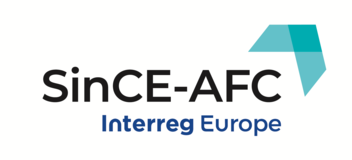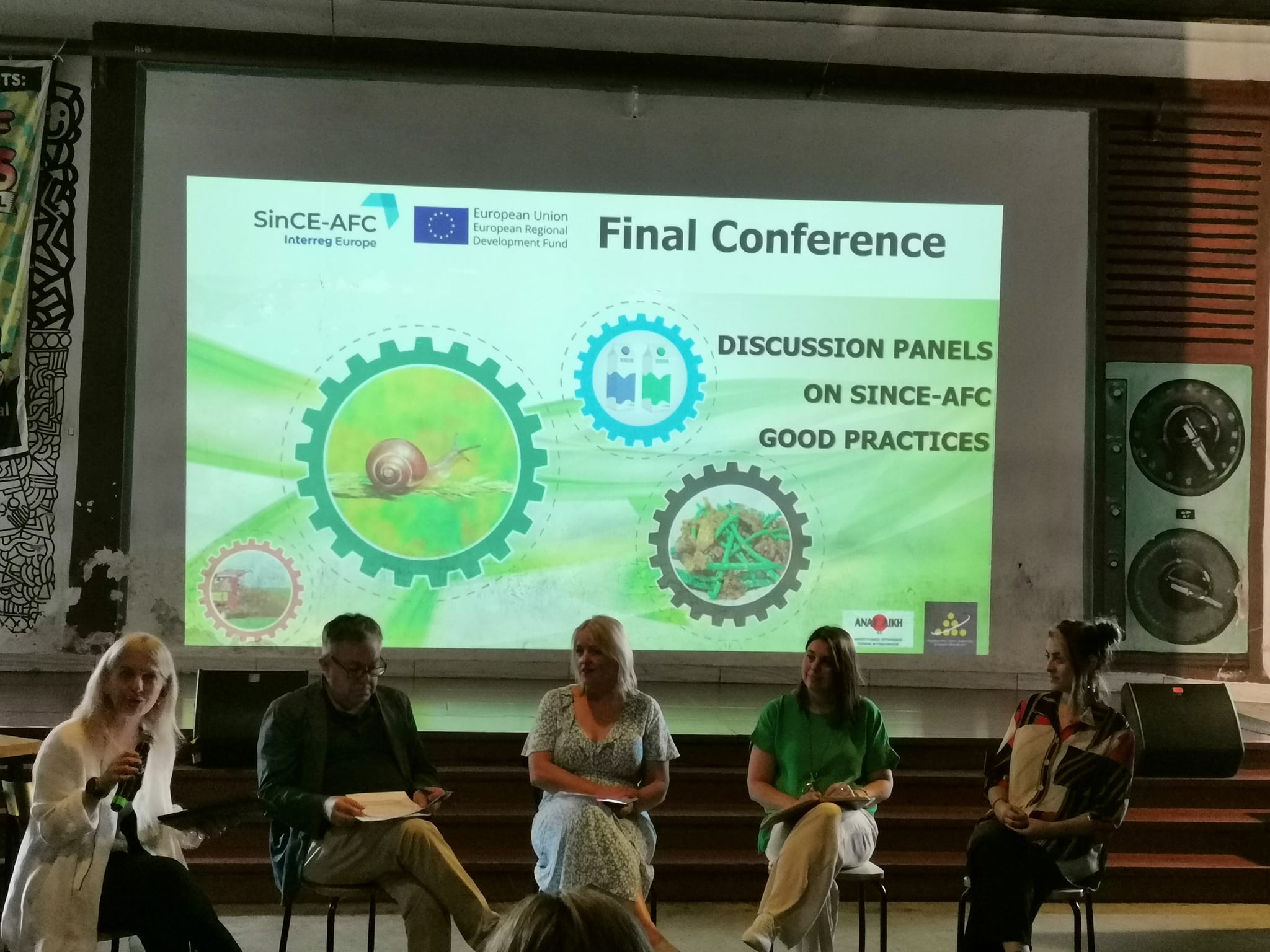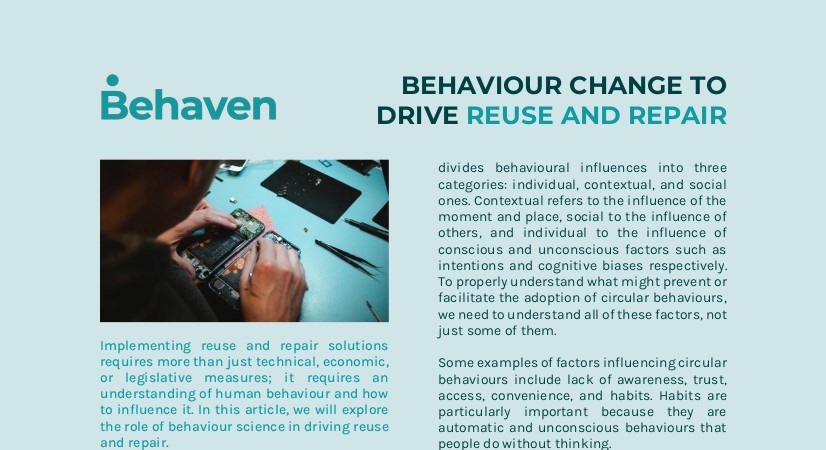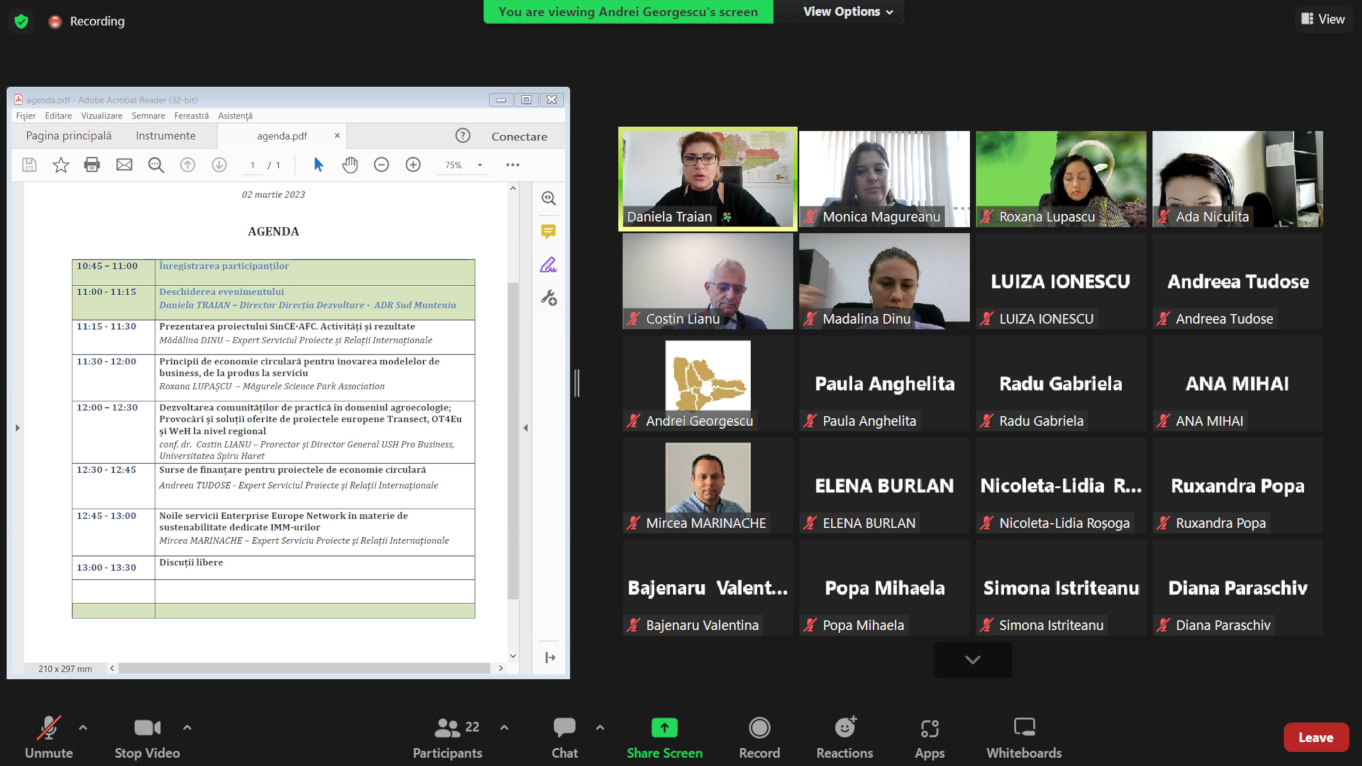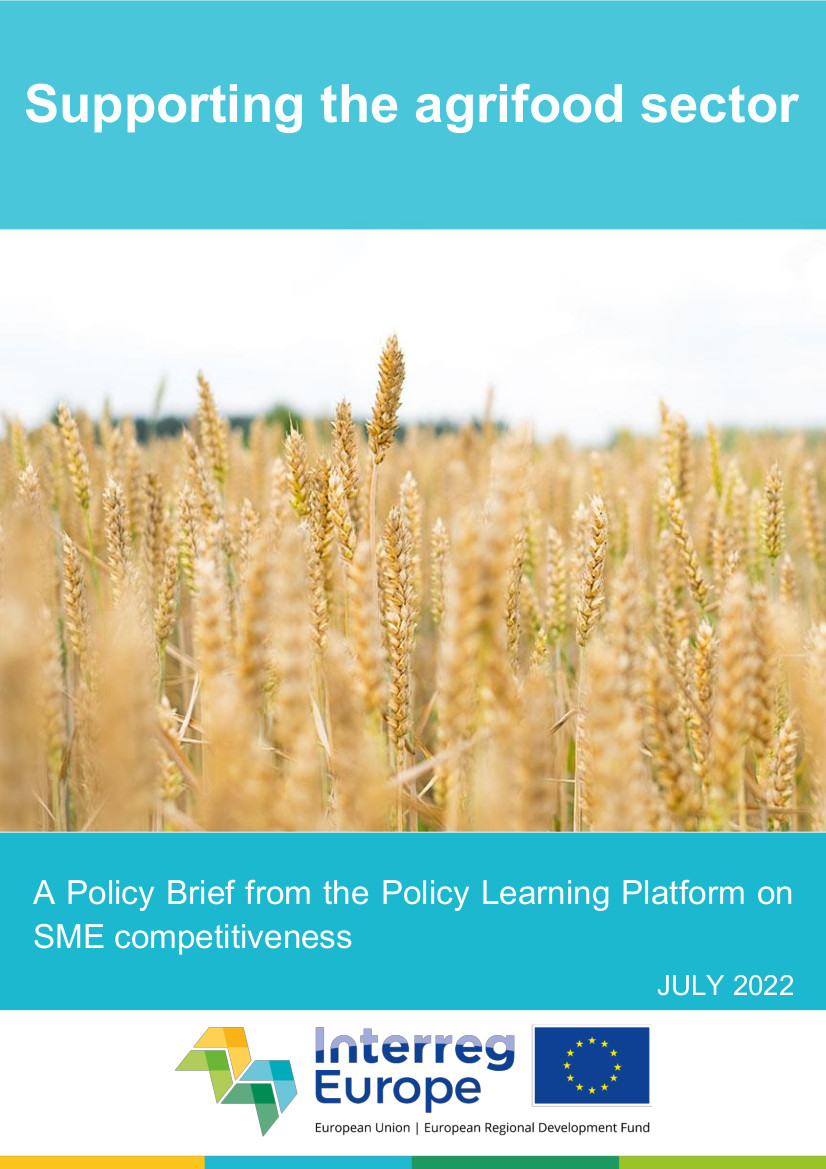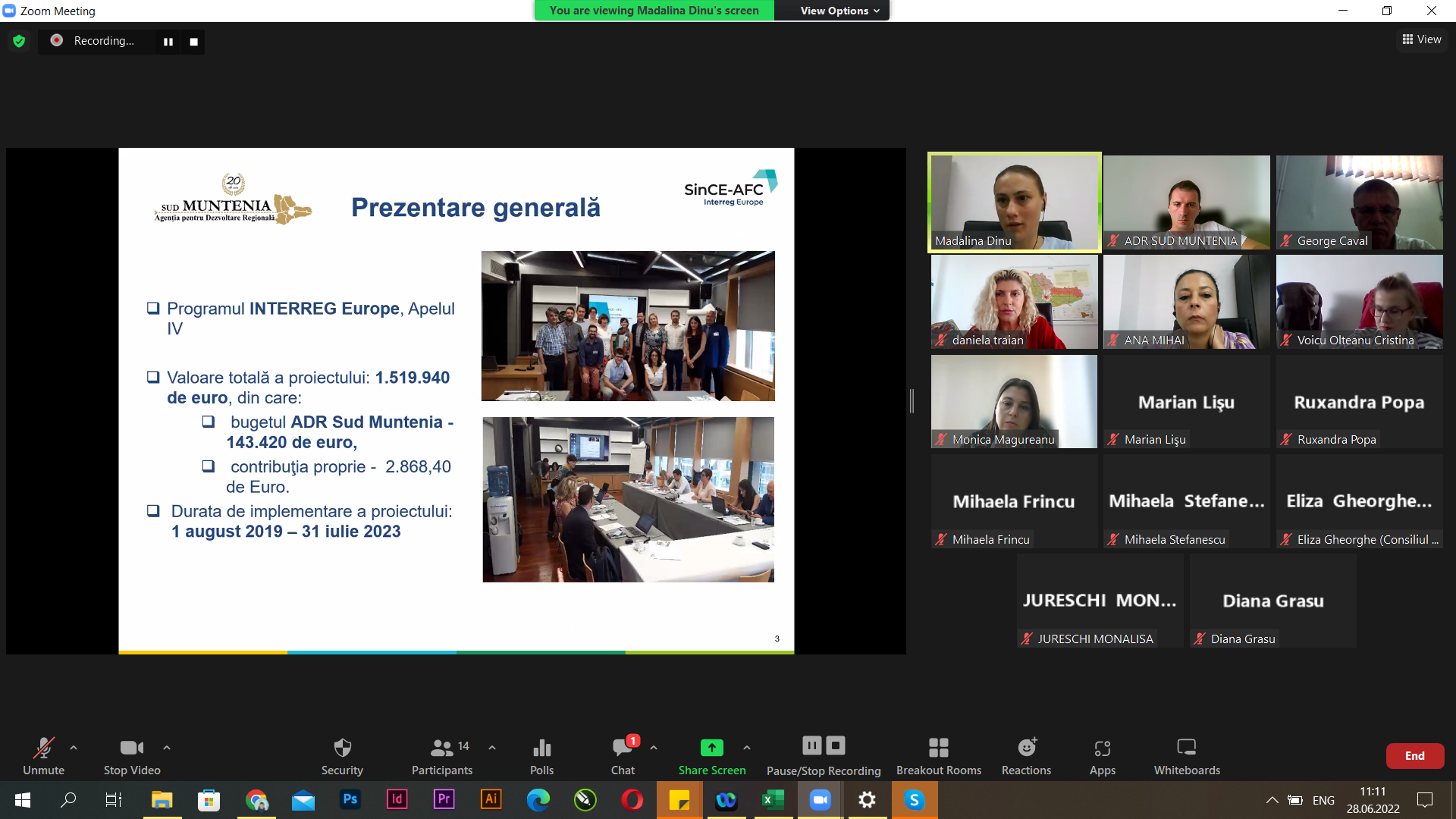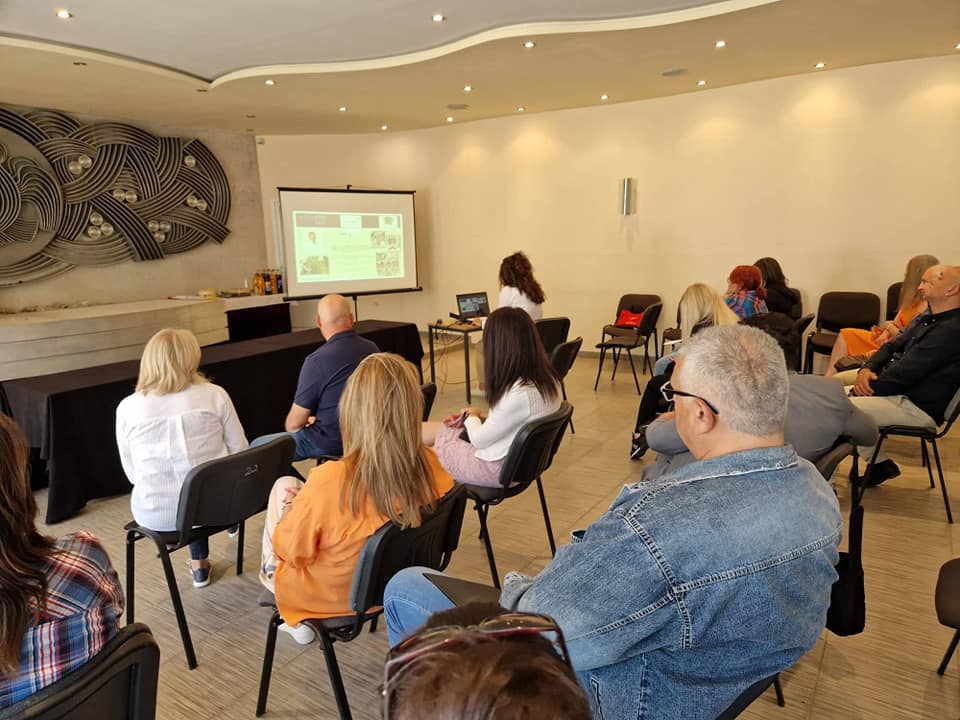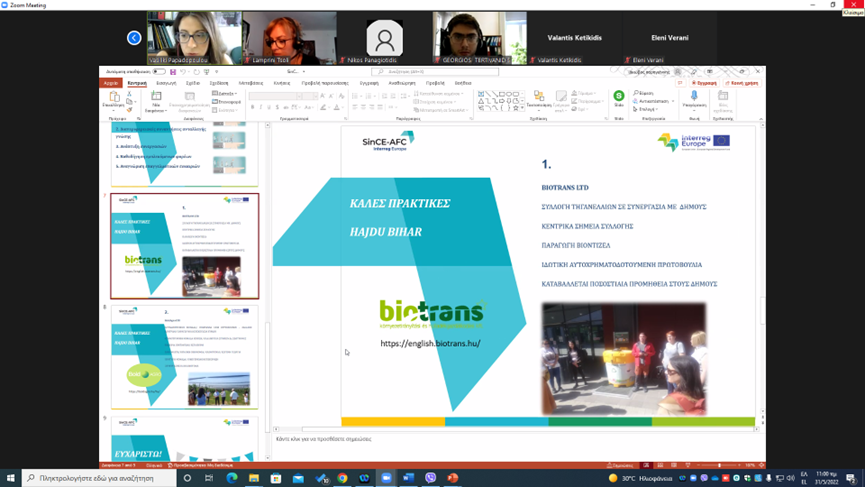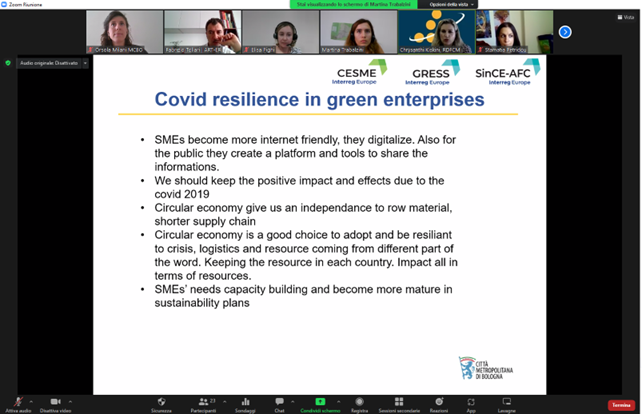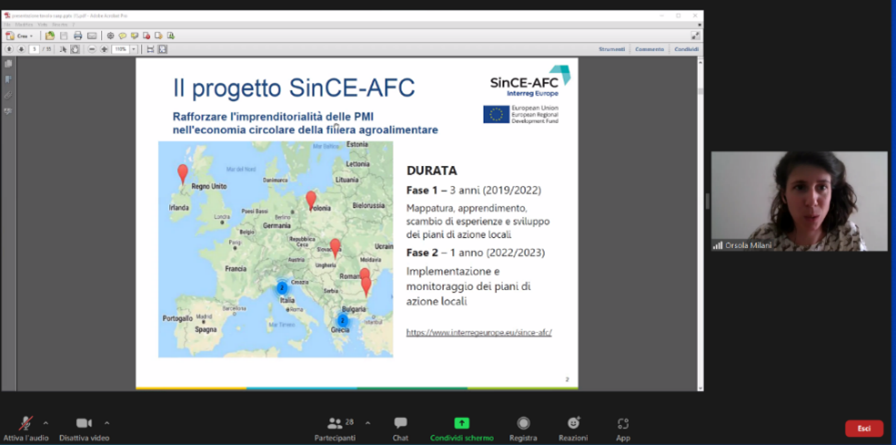The 3rd Local Stakeholder Group meeting in Greece was organised by ANATOLIKI SA with the cooperation of the Regional Development Fund of Central Macedonia on behalf of the Region of Central Macedonia (RCM) and held on January 28th 2021. The agenda included the initiatives of the Region of Central Macedonia to promote circular economy, the results of the 1st phase of SINCE-AFC consultation process and multiple good practices identified in the project partners’ countries.
Kostas Michailidis from the RCM opened the event by presenting the initiatives and actions of the Region to further promote circular economy in industry and market sector. More specifically, he indicated the activities of the current results of the One Stop Liaison Office operating in the area from mid-2020. The results of the 1st phase of SINCE-AFC consultation porcess on the aspects of circular economy in agri-food chain, where numerous project stakeholders participated, were analysed by Vasiliki Papadopoulou from ANATOLIKI SA.
Christos Karkanias from ANATOLIKI SA presented also 5 good practices identified in the context of SINCE-AFC implementation in Italy, Ireland, Romania, Hungary and Bulgaria. In particular, the good practices included the Italian platform on circular economy, ‘Bold Agro Kft’ an agro-food SME in Hungary reusing food and livestock waste, ‘Envirogrind Ltd’ a waste management plant operating in Ireland, ‘Ateliere Fara Frontiere’ a social cooperative enterprise reusing organic and electronic waste and finally the collection of straw waste to produce pellet to use it for energy production.
Furthermore, representatives of 2 new good practices identified in the RCM analysed their initiatives to achieve circular economy in their SMEs. Particularly, Dimitrios Gortzis from ‘Hellenic Waste Management SA’ listed the actions of circular economy including the treatment and reuse of expired products, wood and packaging waste to produce compost and energy. In addition, Pavlos Tsakiris from ‘Tsakiris Family’ explicated the circular economy initiatives of this SME that include the reuse of livestock waste in its cultivation fields and the treatment of the expired products (eggs) to produce new types of food.
30 participants from Region and Municipal authorities, Universities, AgroFood cooperatives and associations, Waste Management and Industry associations, as well as Development Agencies attended this event contributing in a fruitful discussion on circular economy promotion. 
